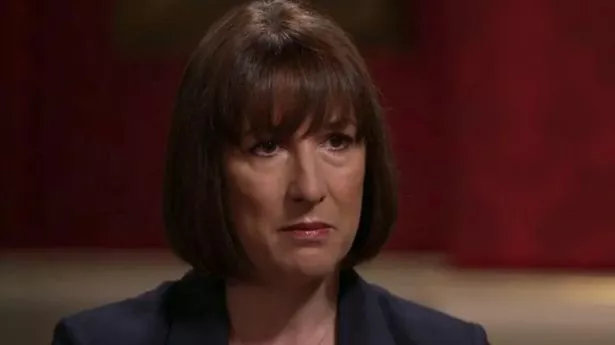Lincolnshire Homeowners Are Wanting To Know When Mortgage Interest Rates Will Fall
Will Interest rates fall anytime soon. With the news that today 2nd November 2023 the interest rates will remain the same at 5.25 percent, homeowners want to know when life will get easier and when mortgage rate fall.
When we broke the news today that mortgage interest rates will stay at 5.25, it brough a lot of relief to homeowners. But already we have received emails from our readers in Lincolnshire including Grimsby, Scunthorpe, Skegness, Boston, and Lincoln, asking when will mortgage rates drop.
Sadly, mortgage rates will not drop anytime soon according to financial experts, and this was echoed by Bank of England Governor Andrew Bailey who said there was no prospect of any interest rate being cut anytime soon.
He said: ‘We’ve held rates unchanged this month, but we’ll be watching closely to see if further rate increases are needed. It’s much too early to be thinking about rate cuts,’ he said.
Since December 2021, when it stood at 0.1 per cent, the Bank of England’s Monetary Policy Committee has upped the base rate on 14 consecutive occasions. This has caused hardship to those living in Lincolnshire and the rest of the UK.
The Current State of Mortgage Rates
The Bank of England’s Monetary Policy Committee has been consistently increasing the base rate over the past year, reaching 5.25 percent.
This upward trend has caused concern among borrowers, as mortgage rates closely follow the base rate. However, recent forecasts suggest that a reversal may be on the horizon.
According to experts, the peak of the base rate is expected to stabilize at 5.25 percent for a considerable period before gradually decreasing. This projection has led many to anticipate a drop in mortgage interest rates in the near future. So, when will mortgage interest rates drop?

Factors Influencing Mortgage Interest Rates
To understand when mortgage rates will fall, it’s essential to consider the factors that influence their movement. Several key variables come into play when determining the trajectory of interest rates:
- Inflation Rate
The inflation rate plays a significant role in the decision-making process of central banks. When inflation rises, central banks tend to increase interest rates to curb spending and stabilize prices.
Conversely, when inflation is low, central banks may lower interest rates to stimulate economic growth. Therefore, the future direction of mortgage rates relies heavily on the inflation rate and its impact on the economy.
- Wage Growth and Unemployment
Wage growth and unemployment rates are crucial indicators of economic health. Higher wage growth can lead to increased consumer spending, which may drive up inflation and, subsequently, mortgage rates.
On the other hand, low wage growth and high unemployment may result in reduced consumer spending and lower inflation, potentially leading to a decline in mortgage rates.
- Global Economic Conditions
The global economic landscape, particularly the policies of major central banks like the Federal Reserve in the United States, can influence the direction of mortgage rates in the UK.
As the Bank of England aims to keep the pound competitive with other currencies, it often adjusts its rates to align with those of other central banks. Therefore, developments in the US economy and the actions of the Federal Reserve can have a significant impact on mortgage rates in the UK.
Forecasts on When Mortgage Rates Will Fall
Financial analysts and economists have made predictions about when mortgage rates will start to decrease. While these forecasts are subject to change based on evolving economic conditions, they provide valuable insights into the potential timeline for falling mortgage rates. Here are some expert opinions on when this decline may occur:
- Capital Economics
Paul Dales, chief UK economist at Capital Economics, forecasts that mortgage rates will fall in 2025, potentially reaching around 3 percent by the end of that year. Dales cites several reasons for this projection, including the expected fall in the Consumer Price Index (CPI) inflation rate and the easing of wage growth.
However, he warns that the process of lowering mortgage rates may be gradual rather than sudden, as the UK’s inflation problem is unlikely to disappear quickly.
- Market Expectations
Market expectations have also had an impact on predictions about falling mortgage rates. In recent weeks, the market expectation for the peak of the base rate has decreased from 6.5 percent to 5.25 percent.
This shift suggests that experts and investors anticipate a more conservative approach to interest rate hikes by the Bank of England, which could pave the way for a decline in mortgage rates in the coming years.
- Economic Outlook
The economic outlook, both domestically and globally, plays a crucial role in determining when mortgage rates will fall. As economic conditions evolve, central banks assess the need for interest rate adjustments. If the inflation rate eases significantly and inflation expectations decline, the Bank of England may abandon its current guidance and prepare for rate cuts. Therefore, the timeline for falling mortgage rates will depend heavily on the future economic landscape.
Implications for Borrowers and Savers
Understanding when mortgage rates will fall is of paramount importance for borrowers and savers. Here’s what you should keep in mind as you navigate this changing landscape:
- Savers
Savers have been grappling with historically low interest rates for years. While recent forecasts suggest a potential decline in mortgage rates, savers may not see an immediate increase in savings account interest rates.
Banks and financial institutions determine savings rates based on various factors, including market interest rate expectations, funding and lending targets, and competitor pricing. Therefore, while falling mortgage rates may indicate a more favourable environment for savers in the long run, it’s important to manage expectations regarding short-term changes in savings account interest rates.
- Mortgage Borrowers
For mortgage borrowers, falling mortgage rates can present new opportunities. As rates decrease, homeowners may consider refinancing their mortgages to take advantage of lower interest rates and potentially reduce their monthly mortgage payments. However, timing is crucial when considering a mortgage refinance.
It’s essential to closely monitor market conditions, seek professional advice, and evaluate the potential benefits against any associated costs and fees.
Additionally, prospective homebuyers may find a more favourable lending environment as mortgage rates decline. Lower interest rates can increase affordability and potentially expand housing options.
However, it’s important to consider long-term financial goals and assess personal financial circumstances before making any decisions.
Rishi Sunak and his Tory Government are hoping interest rates will go down before he calls a General Election. Many conservate MPs we have spoken to already believe it is a one-horse race at the next General Election with Labour winning by a huge majority.


